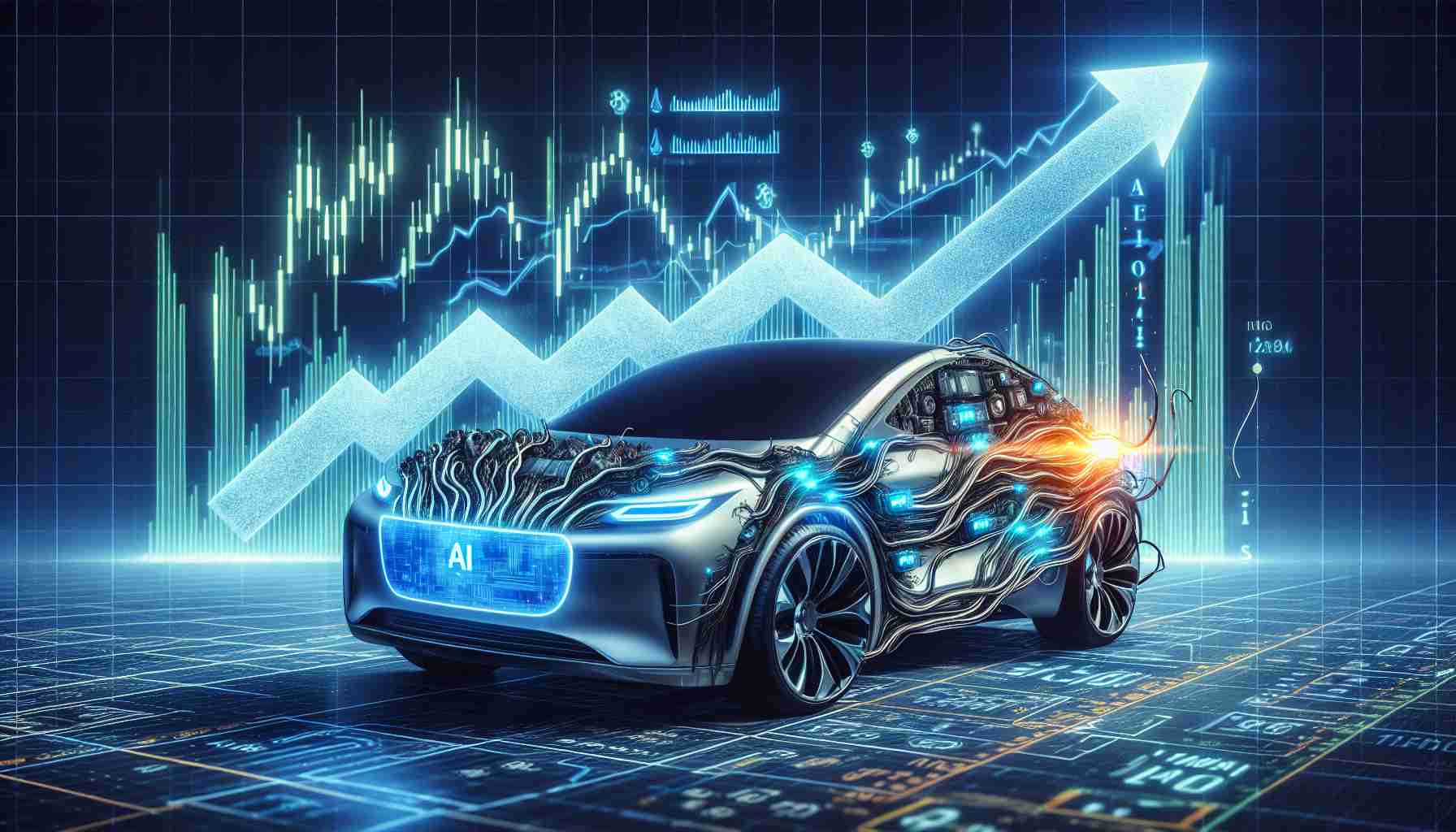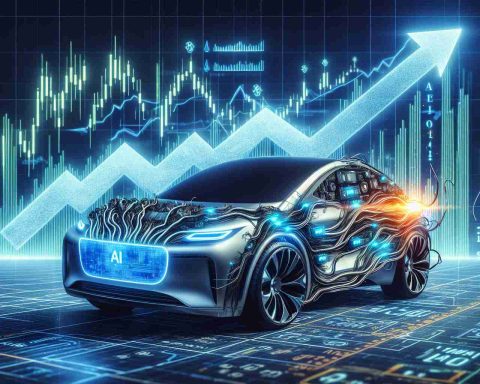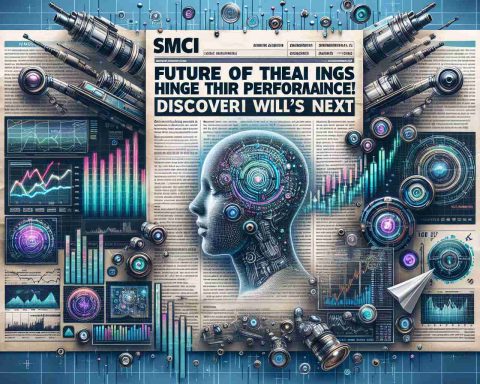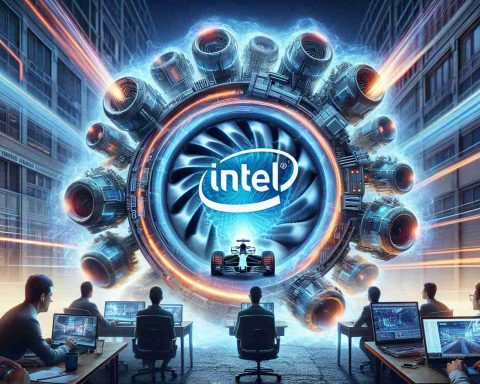In a landmark development today, Tesla’s stock has surged following their announcement to integrate advanced Artificial Intelligence (AI) technologies into their electric vehicles, paving the way for a new era in automotive evolution. This bold step comes as Tesla aims to transcend traditional car manufacturing, harnessing AI to enhance vehicle productivity, safety, and user customisation in unprecedented ways.
AI Integration: A Game Changer
Elon Musk, Tesla’s CEO, revealed that the company’s latest AI systems will be capable of learning and adapting from the driving habits of its users, greatly enhancing autonomous driving capabilities. This innovative approach promises a significant reduction in accidents and improved energy efficiency, positioning Tesla at the forefront of the smart vehicle industry.
Future Focused Expansion
Analysts believe the stock surge is a strong market approval of Tesla’s future-focused strategies. The company is not only prioritising smart technology but also expanding its battery supply chain with the introduction of a new, eco-friendly production method. This shift is expected to lower production costs and increase the vehicles’ lifespan, further attracting eco-conscious consumers.
Market Implications
Tesla’s pioneering advancements in AI can potentially set a new standard for the automotive sector, urging competitors to pursue similar technologies. As a result, the future of transportation looks markedly different, where AI-driven vehicles become the new norm, creating a safer and more efficient travel experience. Investors and technology enthusiasts alike should closely monitor Tesla’s progress as the company continues to redefine the automotive industry’s boundaries.
Tesla’s AI Revolution: Steering the Future of Automotive and Environmental Transformation
Tesla’s recent announcement to incorporate advanced Artificial Intelligence technologies into their electric vehicles is not just a landmark moment for the company but a significant leap forward for sustainable transportation. This integration could profoundly impact the environment, humanity, and the global economy, charting a course towards a greener and more technologically advanced future.
Environmental Impact
The integration of AI systems in electric vehicles heralds a promising era for environmental conservation. By enhancing the energy efficiency of vehicles through adaptive learning, Tesla aims to reduce carbon emissions significantly. AI technology allows vehicles to optimise energy usage by learning and predicting the most efficient routes and driving habits, thus minimising energy waste. As these AI-driven electric vehicles become more pervasive, the reduction in fossil fuel dependency could lead to a substantial decrease in pollution levels, significantly impacting climate change efforts.
Humanity’s Leap into the Future
On a human level, Tesla’s innovations could redefine mobility and safety. The enhanced autonomous driving capabilities proposed by Tesla’s AI systems mark a crucial step in reducing traffic accidents, which are largely attributed to human error. This leap towards safety not only has the potential to save countless lives but also changes the relationship between humans and transportation, allowing people to reclaim travel time for other productive or leisure activities.
Economic Implications
Economically, Tesla’s shift to an AI-integrated electric vehicle model presents both opportunities and challenges. The transition to using eco-friendly production methods for their battery supply chains could establish a new manufacturing standard, promoting sustainable practices across industries. This move may attract eco-conscious consumers while prompting competitors to innovate, sparking a ripple effect throughout the automotive sector. However, this transformation requires significant investment, both in terms of technology development and infrastructure, which could lead to short-term economic fluctuations.
A Vision for the Future
Tesla’s strategic orientation towards AI and sustainability can drive a broader cultural shift towards an environmentally responsible and technologically savvy society. As more companies follow suit, the adoption of AI-driven electric vehicles will likely accelerate, leading to smarter cities with reduced congestion and pollution, ultimately shaping a future where transportation is both efficient and eco-friendly.
Tesla’s announcement, therefore, is not just about pioneering technological advancements in the automotive sector; it is about redefining humanity’s interaction with the environment and setting a precedent for an economically sustainable future. In this regard, the impact of Tesla’s AI integration transcends the boundaries of innovation, promising a transformative journey toward a more secure and sustainable world.
Why Tesla’s AI-Powered Vehicles Might Be the Future of Transportation
In a groundbreaking development, Tesla’s recent announcement to integrate advanced Artificial Intelligence (AI) technologies into its electric vehicles has set the automotive world abuzz. This strategic move is aimed at revolutionising vehicle productivity, safety, and user customisation, positioning Tesla as a trailblazer in the automotive evolution.
Specifications and Features of Tesla’s AI Systems
Tesla’s new AI systems are designed to learn and adapt from the driving habits of users. This not only enhances autonomous driving capabilities but also promises a significant reduction in accidents. The adaptive AI technology works in tandem with advanced sensors and onboard computing power to create a semi-autonomous driving experience that keeps getting better over time. The increased energy efficiency and personalised driving experiences are other notable features likely to attract tech-savvy and eco-conscious drivers.
Market Trends and Innovations
The integration of AI is indicative of a broader trend where major automotive manufacturers are increasingly investing in smart technology. By taking this leap, Tesla aims to establish itself as the leader in AI-driven vehicles, potentially setting new benchmarks for rivals. Competitors in the automotive industry may need to ramp up their efforts in AI technology, focusing on safety enhancements and energy efficiency to keep up with consumer expectations.
Sustainability and Eco-Friendly Innovations
Tesla is also making strides in sustainability by introducing an eco-friendly production method that is expected to expand its battery supply chain. This innovation not only lowers production costs but also extends the life of the vehicles, aligning with the growing demand for sustainable automotive solutions. The move helps consolidate Tesla’s reputation among eco-conscious consumers who value both technological innovation and environmental responsibility.
Market Analysis and Predictions
Analysts anticipate that Tesla’s stock surge reflects strong market approval of its technologically advanced vision. As AI-driven vehicles emerge as potential game-changers, the transformation of the transportation sector seems inevitable. Such vehicles could become standard fare, offering safety and efficiency previously unmatched in traditional automobiles. Tesla’s continual innovative thrust could pressure competitors to follow suit or risk losing market relevance.
Potential Limitations and Concerns
Despite the promising advancements, there are concerns regarding the ethical and safety implications of AI in autonomous vehicles. Ensuring cybersecurity, maintaining data privacy, and addressing potential job losses in traditional automotive roles are challenges that Tesla and the industry must navigate carefully.
For more details on Tesla’s innovations and developments, visit the official Tesla website.




















